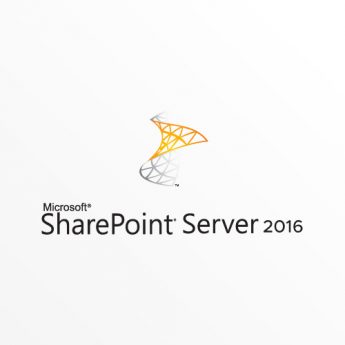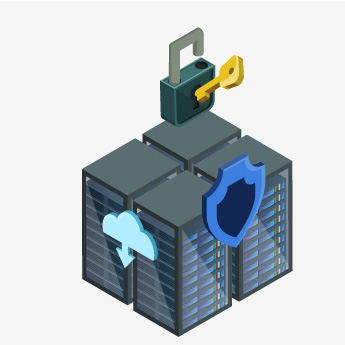Objectives
• Describe the apps for SharePoint development platform.
• Use the client-side object models and the REST API to communicate with SharePoint.
• Configure security for apps for SharePoint.
• Optimize the performance of apps for SharePoint.
• Explain the capabilities and applications of managed metadata in SharePoint 2013.
• Automate the creation and configuration of managed metadata term sets.
• Interact with managed metadata term sets and fields from client-side and server-side code.
• Describe the SharePoint 2013 Search Architecture.
• Build simple and advanced KQL Queries.
• Describe the SharePoint Search Index.
• Describe and work with crawled and managed properties.
• Describe the levels and security of the SharePoint Search Schema.
• Create various types of result sources
• Create basic and complex query transforms
• Configure query rule conditions and actions to target query intent
• Create and modify result types
• Create and modify display templates
• Utilize display templates with various search web parts
• Add managed properties as refiners with counts
• Utilize entity extraction in your crawls
• Extend content processing with Content Enrichment
• Describe how to utilize the Publishing API to access publishing settings and content.
• Describe how to use and customize page content controls in publishing sites.
• Configure website structure and navigation.
• Describe the difference between structured and metadata navigation.
• Utilize basic publishing features of SharePoint.
• Use the new cross-site publishing features of SharePoint 2013.
• Configure and implement variations for multilingual sites.
• Configure search engine optimization settings.
• Add SEO Properties to publishing pages and Managed Navigation terms.
• Configure caching to improve site rendering performance.
• Optimize site assets and resources to maximize performance.
• Describe the key components of Business Connectivity Services in SharePoint Server 2013.
• Create and configure BDC models by using SharePoint Designer.
• Create and configure BDC models by using Visual Studio 2012.
• Describe BCS Connector Framework scenarios.
• Design and Develop BCS Connector stereotyped operations.
• Design and Configure BDC model security.
• Optimize Search Connector crawl performance.
• Use Visual Studio to build BDC Models for Search.
• Deploy BDC Search connectors.
• Debug and troubleshoot your search connectors.
• Design and deploy BDC event subscriber methods.
• Describe how to format event notification messages.
• Configure alerts and event receivers on external lists.
• Explain how user profile data is used in SharePoint.
• Describe the options and restrictions for accessing user profile data.
• Use client-side code to access and server-side code to access and update user profile data.
• Configure and manage user profile properties.
• Describe how to identify, diagnose, and remove bugs in SharePoint apps during development.
• Describe how to record information about issues that arise in deployed SharePoint apps.
• Describe how developers optimize the performance of SharePoint apps by implementing best practices, measuring performance, and load testing.
• Use the client-side object models and the REST API to communicate with SharePoint.
• Configure security for apps for SharePoint.
• Optimize the performance of apps for SharePoint.
• Explain the capabilities and applications of managed metadata in SharePoint 2013.
• Automate the creation and configuration of managed metadata term sets.
• Interact with managed metadata term sets and fields from client-side and server-side code.
• Describe the SharePoint 2013 Search Architecture.
• Build simple and advanced KQL Queries.
• Describe the SharePoint Search Index.
• Describe and work with crawled and managed properties.
• Describe the levels and security of the SharePoint Search Schema.
• Create various types of result sources
• Create basic and complex query transforms
• Configure query rule conditions and actions to target query intent
• Create and modify result types
• Create and modify display templates
• Utilize display templates with various search web parts
• Add managed properties as refiners with counts
• Utilize entity extraction in your crawls
• Extend content processing with Content Enrichment
• Describe how to utilize the Publishing API to access publishing settings and content.
• Describe how to use and customize page content controls in publishing sites.
• Configure website structure and navigation.
• Describe the difference between structured and metadata navigation.
• Utilize basic publishing features of SharePoint.
• Use the new cross-site publishing features of SharePoint 2013.
• Configure and implement variations for multilingual sites.
• Configure search engine optimization settings.
• Add SEO Properties to publishing pages and Managed Navigation terms.
• Configure caching to improve site rendering performance.
• Optimize site assets and resources to maximize performance.
• Describe the key components of Business Connectivity Services in SharePoint Server 2013.
• Create and configure BDC models by using SharePoint Designer.
• Create and configure BDC models by using Visual Studio 2012.
• Describe BCS Connector Framework scenarios.
• Design and Develop BCS Connector stereotyped operations.
• Design and Configure BDC model security.
• Optimize Search Connector crawl performance.
• Use Visual Studio to build BDC Models for Search.
• Deploy BDC Search connectors.
• Debug and troubleshoot your search connectors.
• Design and deploy BDC event subscriber methods.
• Describe how to format event notification messages.
• Configure alerts and event receivers on external lists.
• Explain how user profile data is used in SharePoint.
• Describe the options and restrictions for accessing user profile data.
• Use client-side code to access and server-side code to access and update user profile data.
• Configure and manage user profile properties.
• Describe how to identify, diagnose, and remove bugs in SharePoint apps during development.
• Describe how to record information about issues that arise in deployed SharePoint apps.
• Describe how developers optimize the performance of SharePoint apps by implementing best practices, measuring performance, and load testing.





